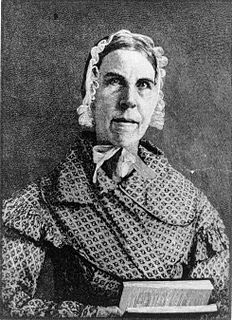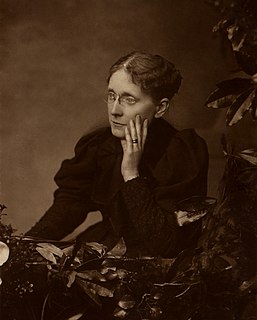A Quote by Stephanie Coontz
Marriage is no longer the main way in which societies regulate sexuality and parenting or organize the division of labor between men and women.
Related Quotes
When women's sexuality is imagined to be passive or "dirty," it also means that men's sexuality is automatically positioned as aggressive and right-no matter what form it takes. And when one of the conditions of masculinity, a concept that is already so fragile in men's minds, is that men dissociate from women and prove their manliness through aggression, we're encouraging a culture of violence and sexuality that's detrimental to both men and women.
Women have always been more critical of marriage than men. The great mysterious irony of it is - at least it's the stereotype - that women want to get married and men are trying to avoid it. Marriage doesn't benefit women as much as men, and it never has. And women, once they are married, become very critical of marriages in a way that men don't.
the patriarchal family, with its division of functions between a providing and protective father and a home-making, submissive mother, however satisfactory it may have been in its time, has outlived its day. Bread-winning is no longer a monopoly of men, and home-making should no longer be the monopoly of women.
If we can redefine marriage as between two men or two women or any other way based on social pressures as opposed to between a man and a woman, we will continue to redefine it in any way that we wish, which is a slippery slope with a disastrous ending, as witnessed in the dramatic fall of the Roman Empire.
I wish you would stop and seriously consider, as a broad and long-term feminist political strategy, the conversion of women to a woman-identified and woman-directed sexuality and eroticism, as a way of breaking the grip of men on women's minds and women's bodies, of removing women from the chronic attachment to the primary situations of sexual and physical violence that is rained upon women by men, and as a way of promoting women's firm and reliable bonding against oppression. . . .
Society may no longer define marriage in the only way marriage has ever been defined in the annals of recorded history. Many societies allowed polygamy, many allowed child marriages, some allowed marriage within families; but none, in thousands of years, defined marriage as the union of people of the same sex.
The error in positivism is that it takes as its standard of truth the contingently given division of labor, that between the science and social praxis as well as that within science itself, and allows no theory that could reveal the division of labor to be itself derivative and mediated and thus strip it of its false authority.
I want a future where women and girls get to be the subject of their own sexuality, not the object of somebody else’s. That we are the main characters in our own play, not props in somebody else’s—which is how women’s sexuality is treated now. Whatever the outside attitudes about sexuality it’s always about somebody’s agenda for us, and I want a world where we can have our own.
When women start to bond over their sexuality, it's very similar to the way that men bond over their sexuality in sports. Men bond over their sexual prowess - their strength, their agility, their power. Women bond over their undulation, their curves, their sensuality - things that are innately feminine. Once you do that, there is no turning back.
Feminism is a belief that although women and men are inherently of equal worth, most societies privilege men as a group. As a result, social movements are necessary to achieve political equality between women and men, with the understanding that gender always intersects with other social hierarchies.
For men to focus on controlling women's reproduction to solve a society's problems seems nothing short of mad or, at best, superstitious. But men's superstition or insanity has real and dire consequences for the women who are its object. And states, too, home in on women's bodies, perhaps to create the illusion that men are in control of uncontrollable forces. Indeed, almost all governments try to control women's bodies and regulate their appearance in some way.



































